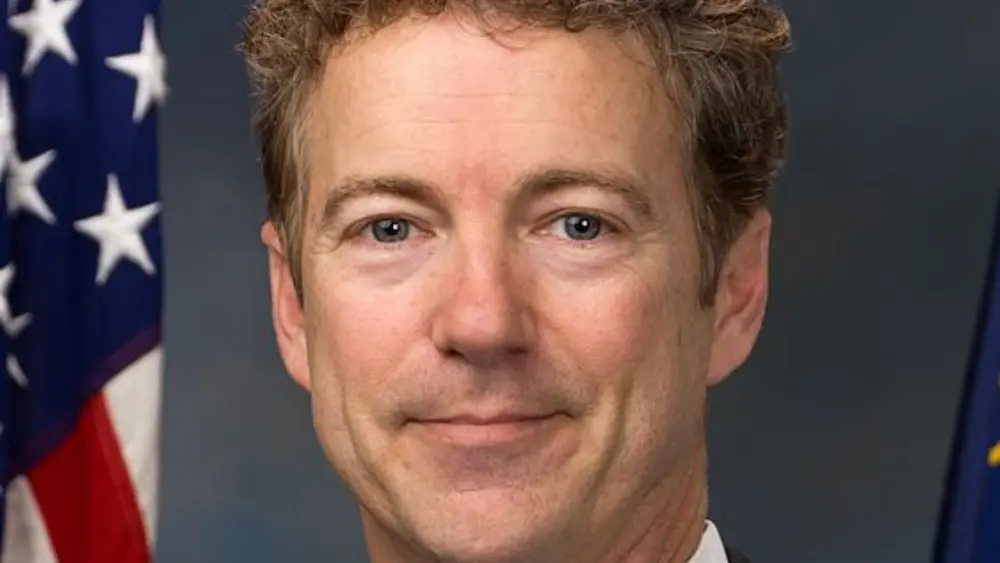Rand Paul, a renowned American politician and physician, is a Kentucky Senator championing libertarian ideals and limited government. Born on January 7, 1963, in Pittsburgh, Pennsylvania, Paul’s career reflects the commitment to fiscal responsibility and constitutional conservatism.
Early Life and Medical Career
His immersion in the world of politics influenced Rand Paul’s early years, owing to the influence of his father, Ron Paul, a prominent former U.S. Representative and a notable figure in libertarian and conservative circles. Rand Paul’s upbringing fostered his profound understanding of public service and a keen awareness of the American political landscape. Despite his political lineage, Paul initially pursued medicine, obtaining a degree from Duke and establishing himself as a respected ophthalmologist. Medical experiences honed his expertise and fostered deep empathy for diverse healthcare needs within his community.
Transitioning from medicine to politics showcased his aspiration to effect broad positive changes beyond the scope of the medical profession. Inspired by limited government and personal liberty, Paul entered politics, aiming to translate healthcare experiences into policies for constituents’ well-being.
Rand Paul: Entry into Politics and Advocacy for Libertarian Ideals
Entering politics, Rand Paul ardently advocated libertarian principles, reflecting the unwavering commitment to smaller, responsible government and safeguarding individual liberties. Emphasizing the significance of upholding the principles enshrined in the U.S. Constitution, Paul’s early political career was defined by his vocal and principled stance on issues such as limited government intervention, free-market economics, and the preservation of civil liberties. Through articulate expression of libertarian ideals, Paul swiftly emerged as an influential voice, rallying support for a more accountable government.
Paul’s dedication to advancing libertarian ideals has positioned him as a leading advocate for policies prioritizing individual freedoms. Championing personal responsibility and limited government, Paul consistently promotes a climate fostering individual empowerment and economic prosperity. His resolute advocacy for libertarian ideals shaped his trajectory and contributed to national discourse, emphasizing enduring significance in politics.
Election to the United States Senate
Rand Paul’s 2010 Senate election marked a significant milestone, offering a prominent platform to advance his vision for limited government. As a senator, Paul voiced strong support for fiscal conservatism, individual freedoms, and constitutional integrity, gaining respect from like-minded constituents. His Senate tenure focused on championing initiatives prioritizing the American people’s interests and promoting responsible, transparent governance.
In the Senate, Paul’s steadfast dedication fosters a political environment nurturing individual empowerment and economic prosperity. His commitment to libertarian policies solidifies his position as a prominent figure, underscoring the enduring impact of his advocacy.
Rand Paul: Legislative Initiatives and Policy Advocacy
Paul’s legislative work encompasses diverse critical issues, reflecting unwavering dedication to policies aligned with his libertarian principles. Opposing overreach and advocating healthcare reform, Paul’s initiatives reflect his commitment to a limited, responsible federal government role. Passionately advocating criminal justice reform, he highlights the need for an equitable, rehabilitative approach to fostering a just society.
Through tireless efforts, Rand Paul champions legislative measures aligned with libertarian values, emerging as a leading voice for pragmatic governance. His commitment to advancing these initiatives underscores his impact on shaping the national conversation and pursuing a transparent, prosperous America.
Foreign Policy and Non-Interventionism
Rand Paul’s steadfast advocacy for non-interventionist foreign policy reflects his conviction in prioritizing diplomacy and avoiding unnecessary military conflicts. Opposing military interventionism, Paul emphasizes a cautious approach to foreign affairs, underpinned by a commitment to national sovereignty and non-aggression. Paul’s unwavering support for a diplomatic foreign policy positions him as a prominent voice for a prudent global approach. Paul’s commitment to non-interventionism reflects dedication to a foreign policy prioritizing diplomacy and global stability.
Rand Paul’s commitment to civil liberties solidifies his reputation as a staunch advocate for constitutional freedoms and individual privacy. Opposing government surveillance and safeguarding citizen rights, Paul emerged as a leading voice for transparency and accountability in security. Relentless advocacy for privacy rights underscores dedication to upholding constitutional principles and ensuring government accountability to the people. Through initiatives and advocacy, Rand Paul champions policies safeguarding civil liberties, emphasizing the critical balance between security and individual rights. His unwavering commitment to promoting greater transparency and oversight in government surveillance practices has contributed to shaping the national dialogue on crucial issues related to privacy rights and the scope of government authority, highlighting the enduring significance of protecting civil liberties in the digital age.
Continued Impact and Advocacy
Rand Paul’s enduring impact and unwavering advocacy within the United States Senate have established him as a prominent and influential figure in American politics, known for his steadfast commitment to promoting libertarian principles and upholding the values of limited government and individual freedoms. Through his unwavering commitment to advancing legislative initiatives rooted in his libertarian principles, Paul has successfully advocated for policies that emphasize fiscal responsibility, individual liberty, and constitutional integrity, leaving a lasting impact on both national discourse and the legislative landscape. His continued dedication to fostering a more transparent and accountable government has resonated with a broad spectrum of constituents, earning him widespread recognition as a principled and pragmatic leader committed to advancing the best interests of the American people.
As a vocal advocate for the principles of limited government and personal liberty, Rand Paul’s ongoing influence and advocacy reflect his enduring commitment to shaping a political climate that prioritizes the empowerment of individuals and the preservation of constitutional rights. By leveraging his position in the Senate to promote policies that reflect his libertarian ideals, Paul has solidified his legacy as a dedicated proponent of pragmatic governance and principled leadership, further emphasizing the importance of championing policies that promote a more responsible and equitable society. His continued impact in the realm of American politics underscores the enduring significance of advocating for policies that uphold the values of liberty, accountability, and a more transparent and inclusive government.
Rand Paul: Public Discourse and Engagement
Rand Paul’s active engagement in public discourse has invigorated national conversations about the role of government and the significance of protecting individual rights and freedoms. Known for his willingness to challenge conventional political norms, Paul has consistently sought to elevate discussions on critical issues, from government spending and national security to healthcare and criminal justice reform. By encouraging open dialogue and fostering constructive debates on complex policy matters, Paul has encouraged a more informed and participatory democratic process, underscoring the importance of upholding the principles of transparency and accountability in governance.
Through his public engagement and vocal advocacy, Rand Paul has underscored the importance of promoting a more inclusive and participatory political environment, one that encourages diverse perspectives and values the input of all citizens. By challenging conventional narratives and advocating for policies rooted in libertarian principles, Paul has sparked meaningful conversations about the necessity of upholding individual freedoms and preserving the checks and balances integral to a robust democratic system. His active participation in public discourse has not only shaped national conversations but has also inspired a more informed and engaged citizenry, highlighting the transformative power of open dialogue and the enduring significance of fostering a more transparent and accountable government.

Legacy and Future Aspirations
Senator Rand Paul’s distinguished legacy is deeply rooted in his unwavering advocacy for limited government and personal freedoms. During his tenure, he consistently championed individual liberty, earning admiration as a key figure in the libertarian movement. His dedication to constitutional conservatism has profoundly influenced the American political landscape, emphasizing the need for transparent and accountable governance. Exemplifying dedication to constituents and the nation, Rand Paul inspires principled leadership, urging future generations to uphold responsible governance.
Looking ahead, Rand Paul’s aspirations reflect his enduring dedication to bettering Kentucky and the nation as a whole. Continuously advocating for individual liberties and a leaner government, he fosters a political environment that values personal freedom. Through persistent efforts to ensure government transparency and accountability, Paul aims to shape an efficient and responsive political system. Navigating political intricacies, Rand Paul’s unwavering commitment to principles guides the pursuit of a just and equitable society.











